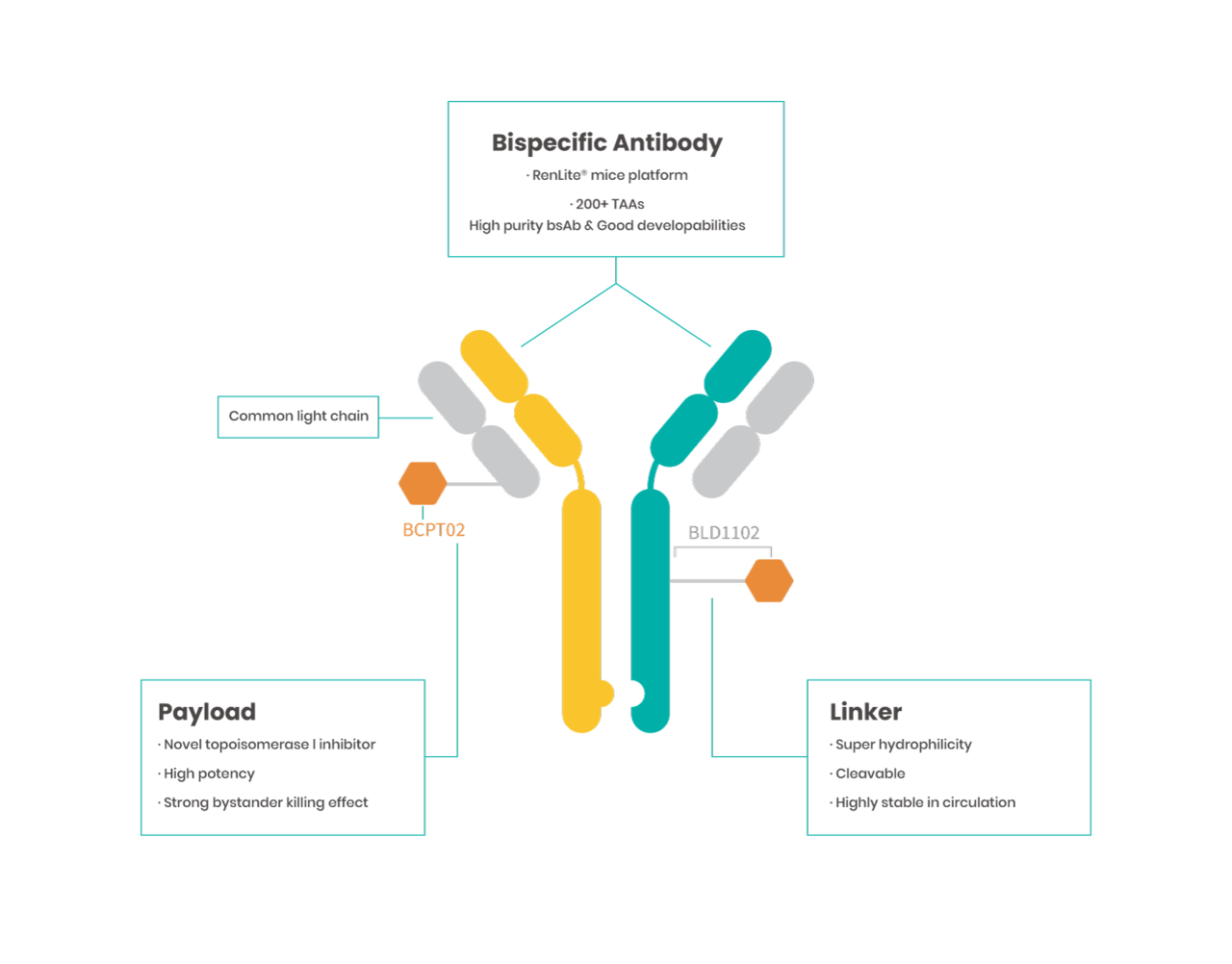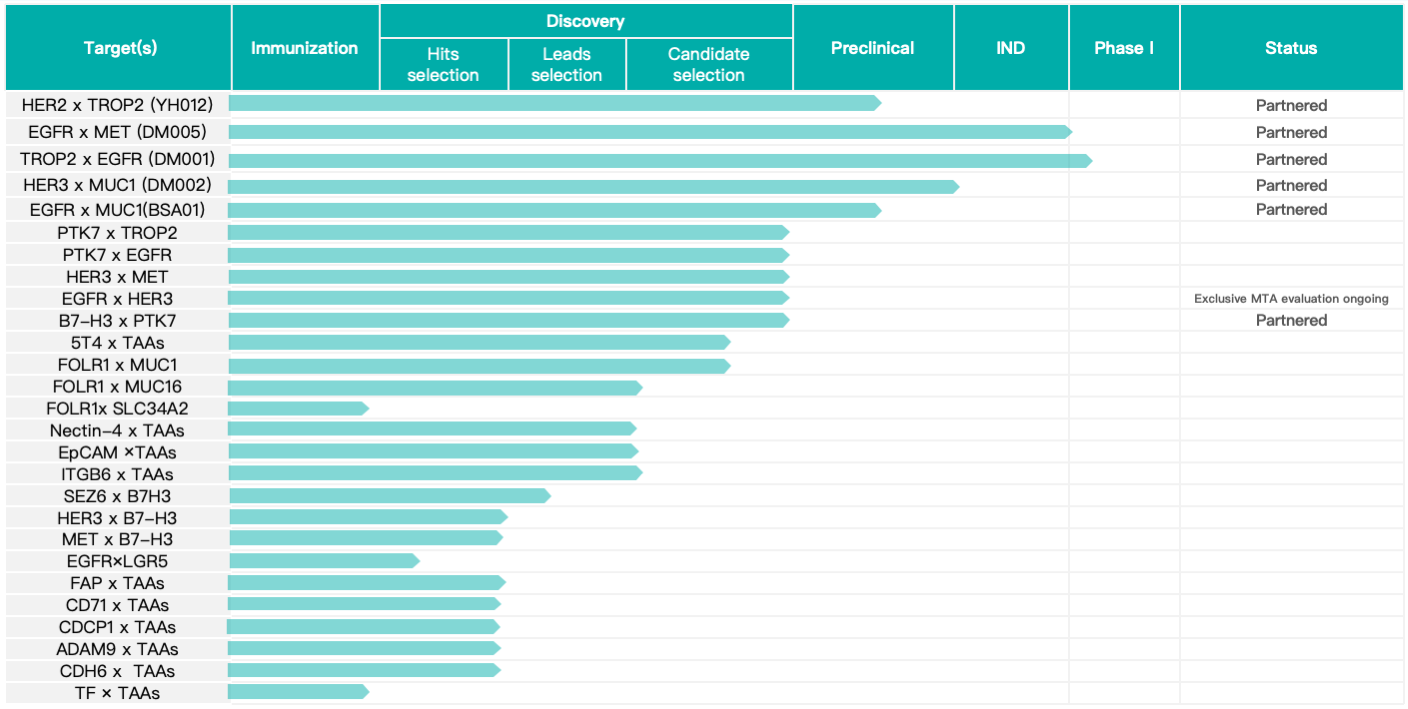Bispecific antibody-drug conjugates (ADCs) targeting dual tumor-associated antigens (TAAs) offer advantages in fighting against cancer. These include
- the ability to simultaneously target multiple tumor-driven proteins, potentially overcoming drug resistance.
- recognize cells co-expressing both targets to increase tumor specificity and reducing off-target toxicity.
- the combination of two targets increases the internalization and thus tumor killing.
- Improving the enrichment and exposure of ADCs in tumor tissues for stronger and longer lasting killing of heterogeneous tumors
Advantages of Biocytogen’s novel bsADC platform
- RenLite-derived common light chain antibodies are easy to assemble into BsAb with low mismatch rate and ideal physiochemical properties.
- Combined with target gene knockout strategy, RenLite KO mice can generate antibodies with increased diversity, potentially against novel epitopes and with cross-species reactivity.
-
Proprietary linker/payload system BLD1102
- Rapid generation of high-quality BsAbs/BsADCs for high-throughput in vitro and in vivo screening

Novel linker/payload system BLD1102 independently developed by Biocytogen
Briefly, BLD1102 is a new ADC platform developed by Biocytogen independently.
- BCPT02 is a novel topoisomerase 1 inhibitor with broad-spectrum and potent tumor killing ability.
- The uniquely designed cleavable linker has excellent hydrophilicity, making ADCs as hydrophilic as monoclonal antibodies, greatly improving ADC’s physiochemical properties.
- BLD1102-ADCs exhibit good stability in plasma and more potent tumor killing compared to vcMMAE.
- BLD1102 demonstrated good tolerabilities in preclinical non-human primates.
Biocytogen’s RenLite-based BsADC platform
- BsADC developed from RenLite mice

Biocytogen's RenLite-based BsADC platform video
Off-the-shelf TAA-targeting antibodies available for flexible plug & play

20+ BsADC programs available for partnership

Posters
SITC 2023: *DM001, a Novel TROP2xEGFR Bispecific ADC, Demonstrates Potent Tumor Growth Inhibition in Preclinical Models and Favorable Safety Profile in Cynomolgus Monkey
SITC 2023: *DM005, an EGFR х MET Bispecific Antibody-drug Conjugate With a Novel DNA Topoisomerase I Inhibitor Payload, Showed Robust Anti-tumor Activity in Preclinical Models
AACR 2023: BCG022: A Novel Bispecific Antibody-Drug Conjugate Targeting HER3 and MET
AACR 2023: A First-In-Class Anti-TROP2/EGFR Bispecific Antibody-Drug Conjugate, DM001, Exhibits Potent Anti-Tumor Efficacy
AACR 2023: A First-In-Class Bispecific Antibody-Drug Conjugate (DM002) Targeting HER3 and the Juxtamembrane Domain of MUC1
AACR 2023: Identification of DM004, A First-In-Class Anti-5T4/MET Bispecific Antibody-Drug Conjugate
Webinar











